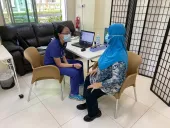
Chinese drugmakers' revenue could be dragged by stricter regulatory oversight
This follows the accounting scandal of a pharmaceutical firm accused of fabricating revenue and costs.
Chinese regulators' more stringent oversight of drugmakers' selling and marketing activities is likely to make it difficult to provide sales rebates to hospitals and physicians, which could lead to lower revenue, a report by Fitch Ratings revealed.
“The stricter oversight, which aims to cut illegitimate selling and distribution expenses in the value chain, lower drug retail prices and encourage a shift towards innovation away from hospital-relationship management, should also improve drugmakers' governance standards,” the firm noted.
Approximately 77 Chinese drugmakers, including A-share listed leading domestic and multinational companies, will reportedly have their accounting records audited in June and July by the Ministry of Finance and National Healthcare Security Administration.
Also read: China's State Medical Insurance Administration to unveil national reimbursement drug list in June
“Chinese media reported that the audit would focus on the authenticity of selling and marketing expenses. This follows the accounting scandal of A-share listed Kangmei Pharmaceutical Co. which has been accused of fabricating its revenue and costs and overstating cash by $4.36b (RMB30b) in an investigation by the China Securities Regulatory Commission,” Fitch Ratings noted.
According to the report, it is common practice for Chinese drugmakers and distributors to provide rebates to hospitals and physicians, as rebates can amount to more than half of drug retail prices and are mostly offered covertly. “Drug makers and distributors generally keep rebates off their books or hide them within legitimate selling expenses,” the firm said.
Chinese media reports that a common scheme under the previous multi-layer distributor system, known as "invoice pass-through," involved Chinese drugmakers selling drugs at low ex-factory prices to "invoice pass-through" companies, who would then issue invoices to distributors after a large mark-up. The mark-up would be ultimately transferred to sales agents, who would provide rebates to hospitals and physicians.
“This arrangement ceased to be viable after the government implemented a two-invoice system in 2017, which requires that only two invoices are issued between a drugmaker and the end-user,” Fitch Ratings noted.
“As a result, we have observed that many drugmakers have employed specialised contract sales organisations (CSO) to undertake selling and marketing activities on their behalf and record commissions to CSOs in selling expenses. Many manufacturers have raised ex-factory selling prices to offset the increase in selling expenses, resulting in higher gross margins,” Fitch Ratings said.
Also read: China's retail pharmacies could bow out to GPO drug prices
Gross margins for Chinese drug manufacturers increased to 42% in 2018, from 32% in 2017, following an average 32% rise in selling expenses that outstripped the average 13% growth in sales revenue. The report noted that Shanghai Fosun Pharmaceutical (Group) Co.'s selling expenses soared 47% YoY in 2018 due to changes in its sales model for some drug products.
“Chinese media have reported that many CSOs' activities are similar to those of previous sales agents and that they have also fabricated invoices to obtain cash from drug makers in order to provide rebates to doctors,” Fitch Ratings added.
Drugmakers that are found to be non-compliant with regulations in the audit may face penalties and their businesses may be negatively impacted. Whilst their selling and marketing expenses may fall, they may lose sales revenue from hospitals after cutting sales rebates, the firm said.













 Advertise
Advertise













